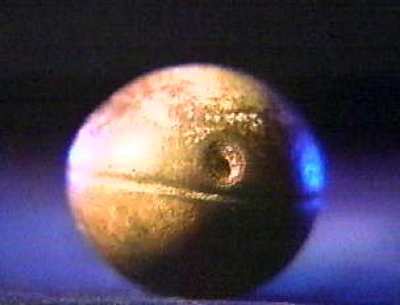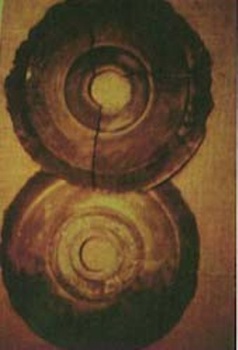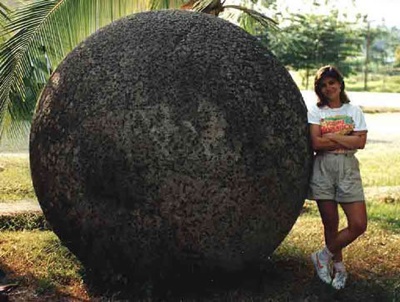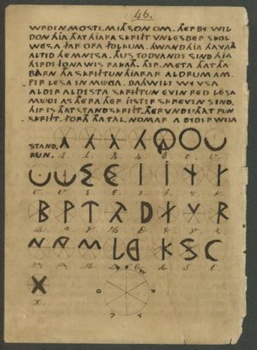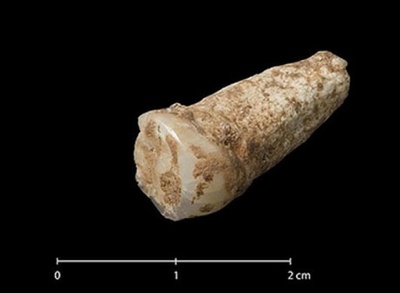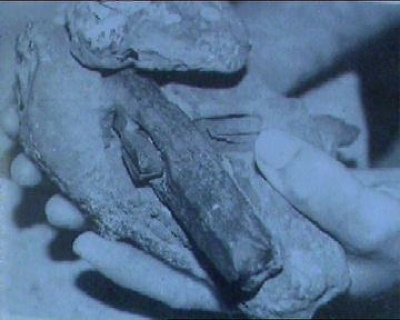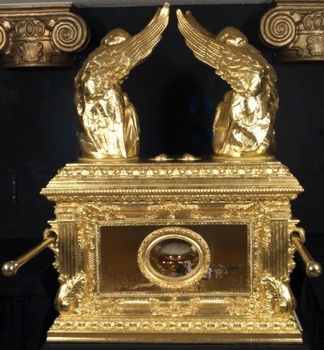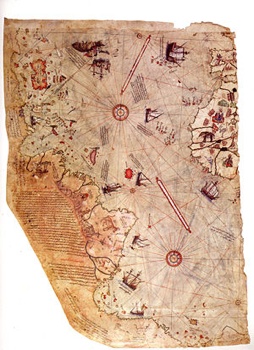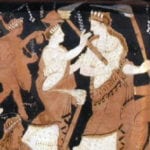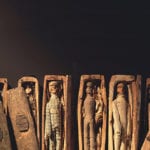 Movies and TV
Movies and TV  Movies and TV
Movies and TV  Weird Stuff
Weird Stuff 10 of History’s Greatest Pranks & Hoaxes
 Miscellaneous
Miscellaneous 10 LEGO Facts That Will Toy with Your Mind
 Misconceptions
Misconceptions 10 Widespread Historical Myths and the Texts That Started Them
 Crime
Crime 10 Incredible Big-Time Art Fraudsters
 Movies and TV
Movies and TV 10 Most Influential Fictional Objects in Cinema History
 Our World
Our World Top 10 Real Almost‑Cities That Never Materialized
 Technology
Technology 10 Unsettling Ways Big Brother Is (Likely) Spying on You
 Music
Music 10 Chance Encounters That Formed Legendary Bands
 Space
Space 10 Asteroids That Sneaked Closer Than Our Satellites
 Movies and TV
Movies and TV 10 Shared TV Universes You’ve Likely Forgotten About
 Weird Stuff
Weird Stuff 10 of History’s Greatest Pranks & Hoaxes
 Miscellaneous
Miscellaneous 10 LEGO Facts That Will Toy with Your Mind
Who's Behind Listverse?

Jamie Frater
Head Editor
Jamie founded Listverse due to an insatiable desire to share fascinating, obscure, and bizarre facts. He has been a guest speaker on numerous national radio and television stations and is a five time published author.
More About Us Misconceptions
Misconceptions 10 Widespread Historical Myths and the Texts That Started Them
 Crime
Crime 10 Incredible Big-Time Art Fraudsters
 Movies and TV
Movies and TV 10 Most Influential Fictional Objects in Cinema History
 Our World
Our World Top 10 Real Almost‑Cities That Never Materialized
 Technology
Technology 10 Unsettling Ways Big Brother Is (Likely) Spying on You
 Music
Music 10 Chance Encounters That Formed Legendary Bands
 Space
Space 10 Asteroids That Sneaked Closer Than Our Satellites
10 More Unsolved Mysteries of the World
There is no doubt that some of our most popular lists are ones which revolve around mystery and intrigue. Fortunately for us all, there is no end to the number of weird and wonderful mysteries in the world, so we are now able to present our fourth list of unsolved mysteries. So – onwards to the world of the mysterious!
Over the last few decades, miners in South Africa have been digging up mysterious metal spheres. Origin unknown, these spheres measure approximately an inch or so in diameter, and some are etched with three parallel grooves running around the equator. Two types of spheres have been found: one is composed of a solid bluish metal with flecks of white; the other is hollowed out and filled with a spongy white substance. The kicker is that the rock in which they where found is Precambrian – and dated to 2.8 billion years old! Who made them and for what purpose is unknown.
In 1938, an archaeological expedition led by Dr. Chi Pu Tei into the Baian-Kara-Ula mountains of China made an astonishing discovery in some caves that had apparently been occupied by some ancient culture. Buried in the dust of ages on the cave floor were hundreds of stone disks. Measuring about nine inches in diameter, each had a circle cut into the center and was etched with a spiral groove, making it look for all the world like some ancient phonograph record some 10,000 to 12,000 years old. The spiral groove, it turns out, is actually composed of tiny hieroglyphics that tell the incredible story of spaceships from some distant world that crash-landed in the mountains. The ships were piloted by people who called themselves the Dropa, and the remains of whose descendants, possibly, were found in the cave.
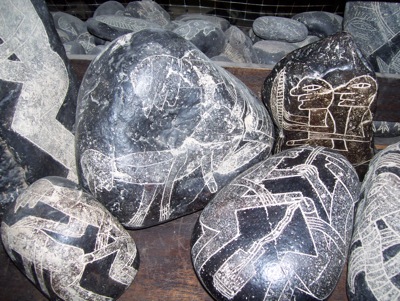
Beginning in the 1930s, the father of Dr. Javier Cabrera, Cultural Anthropologist for Ica, Peru, discovered many hundreds of ceremonial burial stones in the tombs of the ancient Incas. Dr. Cabrera, carrying on his father’s work, has collected more than 1,100 of these andesite stones, which are estimated to be between 500 and 1,500 years old and have become known collectively as the Ica Stones. The stones bear etchings, many of which are sexually graphic (which was common to the culture), some picture idols and others depict such practices as open-heart surgery and brain transplants. The most astonishing etchings, however, clearly represent dinosaurs – brontosaurs, triceratops (see photo), stegosaurus and pterosaurs. While sceptics consider the Ica Stones a hoax, their authenticity has neither been proved or disproved.
Workmen hacking and burning their way through the dense jungle of Costa Rica to clear an area for banana plantations in the 1930s stumbled upon some incredible objects: dozens of stone balls, many of which were perfectly spherical. They varied in size from as small as a tennis ball to an astonishing 8 feet in diameter and weighing 16 tons! Although the great stone balls are clearly man-made, it is unknown who made them, for what purpose and, most puzzling, how they achieved such spherical precision.
The Oera Linda Book is a controversial Frisian manuscript covering historical, mythological, and religious themes that first came to light in the 19th century. Themes running through the Oera Linda Book include catastrophism, nationalism, matriarchy, and mythology. The text alleges that Europe and other lands were, for most of their history, ruled by a succession of folk-mothers presiding over a hierarchical order of celibate priestesses dedicated to the goddess Frya, daughter of the supreme god Wr-alda and Irtha, the earth mother. The claim is also made that this Frisian civilization possessed an alphabet which was the ancestor of Greek and Phoenician alphabets. The current manuscript carries a date of 1256. Internal claims suggest that it is a copy of older manuscripts that, if genuine, would have been written by multiple people between 2194 BC and AD 803. [Source]
Fossils, as we learned in grade school, appear in rocks that were formed many thousands of years ago. Yet there are a number of fossils that just don’t make geological or historical sense. A fossil of a human hand print for example, was found in limestone estimated to be 110 million years old. What appears to be a fossilized human finger found in the Canadian Arctic also dates back 100 to 110 million years ago. And what appears to be the fossil of a human footprint, possibly wearing a sandal, was found near Delta, Utah in a shale deposit estimated to be 300 million to 600 million years old.
Humans were not even around 65 million years ago, never mind people who could work metal. So then how does science explain semi-ovoid metallic tubes dug out of 65-million-year-old Cretaceous chalk in France? In 1885, a block of coal was broken open to find a metal cube obviously worked by intelligent hands. In 1912, employees at an electric plant broke apart a large chunk of coal out of which fell an iron pot! A nail was found embedded in a sandstone block from the Mesozoic Era. And there are many, many more such anomalies.
The Ark is considered the greatest of all hidden treasures and its discovery would provide indisputable truth that the Old Testament is hard fact. Its recovery remains the goal of every modern archaeologist and adventurer. Its purpose was as a container for the ten commandments given on stone tablets by God to Moses on Mount Sinai. According to the book of Exodus, the Ark is made of shittim wood (similar to acacia) and gold-covered inside and out. It was topped by a mercy seat comprising two cherubs also made of gold. It was believed to have supernatural powers due to several events, including causing the death of a man, who attempted to steady the Ark as the oxen hauling it stumbled, bringing down the walls of Jericho in one battle, and showering misfortune on the Philistines after they captured it in another. There are several speculations around the final resting place of the Ark, and whilst it would take a shrewd operator to find it, it would need a brave or even foolhardy person to open it!
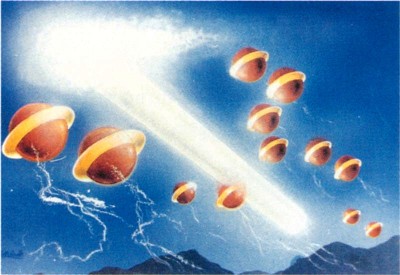
Angel Hair is a rare phenomenon that has so far defied explanation. It is made up of silken threads that rain down on to the earth, but reach out to touch it and it will almost certainly vanish before your eyes. It is a world wide phenomenon with the most regular occurrences from North America, New Zealand, Australia, and western Europe. There is no known proof for what causes this substance, or even what it is made up of. Speculations are that it has come from Spiders or another type of silk-spinning insect, and even UFO’s as it has often been associated with UFO sightings. Because of its sensitive nature, it has been difficult to collect, and to analyse as it is subject to contamination from car exhaust fumes, and even human contact, which could skew the chemical results.
The Piri Reis Map is a famous pre-modern world map created by 16th century Ottoman-Turkish admiral and cartographer Piri Reis. The map shows part of the western coasts of Europe and North Africa with reasonable accuracy, and the coast of Brazil is also easily recognizable. Various Atlantic islands including the Azores and Canary Islands are depicted, as is the mythical island of Antillia. The map is noteworthy for its depiction of a southern landmass that some controversially claim is evidence for early awareness of the existence of Antarctica. Some scholars claim this and other maps support a theory of global exploration by a pre-classical undiscovered civilization. [Source]
This article is licensed under the GFDL because it contains some quotations from Wikipedia.
Additional text for this article is courtesy of The Skeptical News.
Contributors: Rhyno, JFrater
